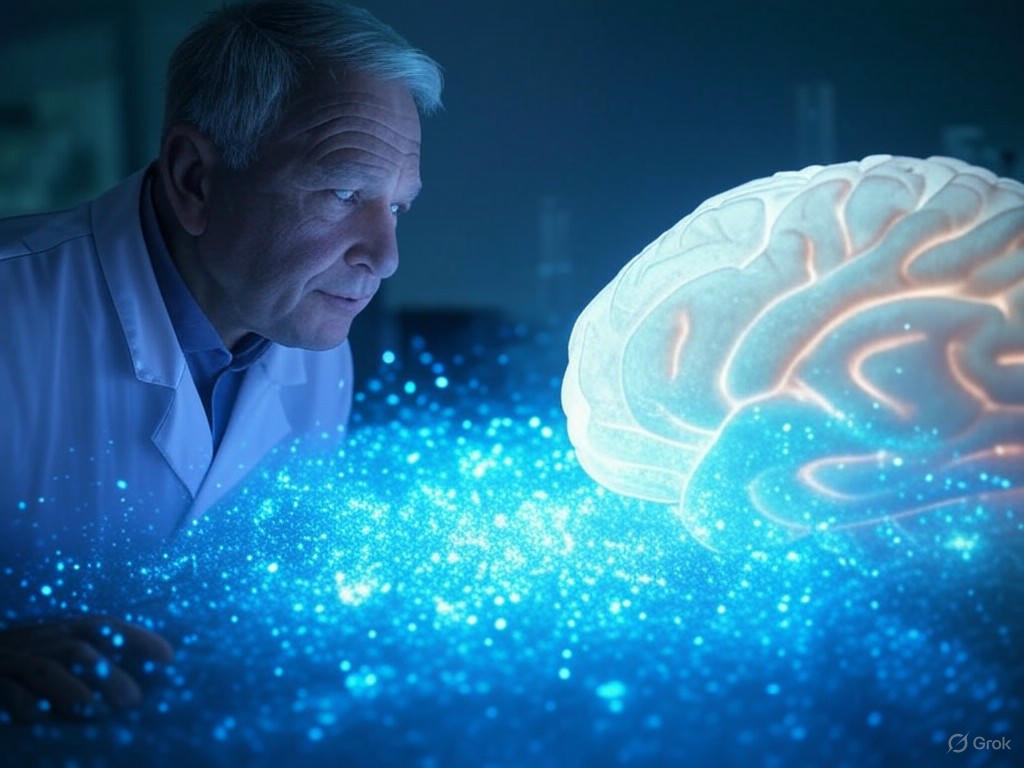
Quantum Computing in Brain: Scientists’ Groundbreaking Discovery
Exploring Quantum Consciousness: The Link Between Quantum Computing and the Human Mind
In the evolving world of quantum consciousness, scientists are uncovering how quantum computing might hold keys to understanding human consciousness. This field merges quantum physics with neuroscience, suggesting that quantum phenomena could play a vital role in our mental experiences. As researchers push forward, they’re testing whether quantum systems can shed light on the brain’s mysteries, potentially transforming how we view cognition.
Imagine a world where your thoughts aren’t just electrical signals but entangled in quantum realities—what if quantum computing could help us explore that? This isn’t science fiction; it’s the basis of ongoing experiments in 2025, where quantum consciousness is bridging technology and the human experience. By examining quantum effects in the brain, we’re opening doors to enhanced awareness and deeper self-understanding.
The Quantum Computing Revolution of 2025
Quantum consciousness research relies on the rapid advancements in quantum computing, which is finally moving from theory to real-world application in 2025. Tech companies like Google and Microsoft are leading the charge, with investments flooding in from banks and pharmaceuticals. Unlike classical computers that use simple bits, quantum systems leverage qubits, allowing them to handle complex problems that mimic nature’s own processes.
As John Levy, CEO of SEEQC, notes, quantum computing speaks a language closer to the universe itself, potentially unlocking insights into quantum consciousness. This shift is accelerating timelines, with milestones like Google’s Willow chip demonstrating quantum supremacy in specific tasks. For those curious about how this ties back to the brain, it’s about using that power to probe consciousness in ways we couldn’t before.
Quantum’s Accelerating Timeline and Its Role in Quantum Consciousness
The path to quantum consciousness involves key breakthroughs in quantum computing’s timeline. In late 2024, Google’s quantum chip Willow achieved supremacy for certain computations, setting the stage for 2025 experiments. Companies such as IBM and Microsoft are now focusing on logical qubits, with error correction advancements making systems more stable and reliable.
Experts predict 2025 as the year quantum tech leaves labs for everyday use, which could directly fuel quantum consciousness studies. Have you ever wondered if your brain’s quantum-like processes could be enhanced by these machines? That’s exactly what researchers are testing, blending computing power with cognitive exploration.
Quantum Consciousness: Investigating Brain-Quantum Interfaces
At the heart of quantum consciousness lies the question: could quantum computing help explain how we think and feel? This research draws from theories like those of Roger Penrose and Stuart Hameroff, who propose that brain structures called microtubules act as biological qubits. By 2025, scientists are using quantum computing to test these ideas, potentially revealing how quantum states influence conscious awareness.
One innovative approach, the expansion protocol, aims to entangle human brains with quantum processors. This method creates superpositions in the system, allowing researchers to observe if participants experience heightened consciousness. It’s a bold step in quantum consciousness that could redefine our understanding of the mind.
Evidence Supporting Quantum Consciousness Theories
Studies on anesthetics provide intriguing evidence for quantum consciousness, showing how isotopes of gases like xenon affect brain function through quantum properties. This suggests that quantum effects aren’t just theoretical—they might be at play in everyday cognition. Microtubules, as proposed in quantum consciousness frameworks, could serve as the brain’s natural quantum processors, enabling complex thought patterns.
If quantum consciousness proves true, it might explain the brain’s remarkable efficiency. Consider a hypothetical scenario: a quantum-enhanced therapy that boosts focus by aligning brain waves with qubits—what could that mean for mental health?
Challenges in Pursuing Quantum Consciousness
Despite excitement, quantum consciousness faces hurdles, including scientific skepticism and technical limitations. Many experts view it as speculative, arguing that consciousness might not involve quantum physics at all. Still, proponents see this as a pre-paradigmatic phase, where interdisciplinary efforts could lead to breakthroughs.
Developing safe ways to interface brains with quantum systems is a major challenge. Techniques like nuclear magnetic resonance offer promise for non-invasive studies, but they’re still evolving. As we navigate quantum consciousness, ethical questions arise too—how do we ensure this technology benefits everyone fairly?
Technical and Ethical Hurdles in Quantum Consciousness Research
Error-prone quantum systems require ongoing improvements, with 2025’s advancements in error correction being a game-changer. But what about the ethics? If quantum consciousness leads to enhanced cognitive abilities, who gets access, and how do we protect personal identities? These issues demand careful consideration as the field grows.
Actionable tip: Stay informed by following updates from leading researchers—it’s a great way to engage with this evolving topic and form your own opinions.
The Wider Impact of Quantum Computing on Society
Beyond quantum consciousness, quantum computing is set to revolutionize fields like medicine, where it could speed up drug discovery by analyzing genetic data faster than ever. In AI, the fusion with quantum tech might create superintelligent systems, raising questions about how this intersects with human consciousness. Materials science stands to gain from discovering new molecules, potentially expanding what’s possible in everyday tech.
For safety systems, quantum computing enhances AI algorithms in banking and autonomous vehicles, making them more secure. How might these developments influence our daily lives, especially when linked back to understanding the brain? It’s a ripple effect that could touch everything from healthcare to personal growth.
How Quantum Consciousness Fits into Future Innovations
As quantum consciousness research advances, it’s part of a larger wave of quantum applications. Hybrid systems combining classical and quantum elements will provide immediate benefits, bridging the gap to full-scale use. For readers interested, exploring quantum software tools could be a practical step toward grasping these concepts.
Quantum consciousness isn’t just about tech—it’s about rethinking our place in the universe. A brief anecdote: Think of early smartphones; they seemed futuristic, but now they’re essential. Could quantum-enhanced consciousness be the next leap?
Looking Ahead: Trends in Quantum Consciousness and Beyond
In 2025 and onward, expect more experiments with logical qubits and specialized hardware that support quantum consciousness studies. These trends will likely integrate with AI and healthcare, creating hybrid solutions for complex problems. As the technology matures, so does our potential to unlock brain mysteries.
The road ahead involves scaling qubits and refining algorithms, but it’s an exciting journey. What if you could use quantum insights to improve your own focus or creativity—doesn’t that spark curiosity?
Conclusion: Embracing the Future of Quantum Consciousness
The pursuit of quantum consciousness represents a thrilling intersection of science and philosophy, where quantum computing might finally demystify the human mind. While challenges persist, the possibilities could reshape our understanding of consciousness and technology. As we move forward, let’s reflect on how these discoveries might enhance our lives.
I’d love to hear your thoughts—do you think quantum consciousness could change how we view ourselves? Share in the comments, explore more on our site, or dive into related topics like AI advancements. Your engagement helps build this conversation.
Sources
- Science Friday. “Quantum Computing in 2025.” Link
- Phys.org. “Quantum Frontier Research.” Link
- The Quantum Insider. “2025 Expert Quantum Predictions.” Link
- Moody’s. “Quantum Computing Trends for 2025.” Link
- The Quantum Insider. “Is Consciousness Research the Next Big Quantum Use Case?” Link
- McKinsey & Company. “Beyond the Hype: Capturing the Potential of AI.” Link
- Modern Sciences. “Quantum Chip Advances in 2025.” Link
- FTSG. “2025 Technology Report.” Link
quantum consciousness, quantum computing, consciousness research, brain quantum interface, quantum brain, Hartmut Neven, quantum mind, human consciousness, quantum physics neuroscience, quantum systems brain







